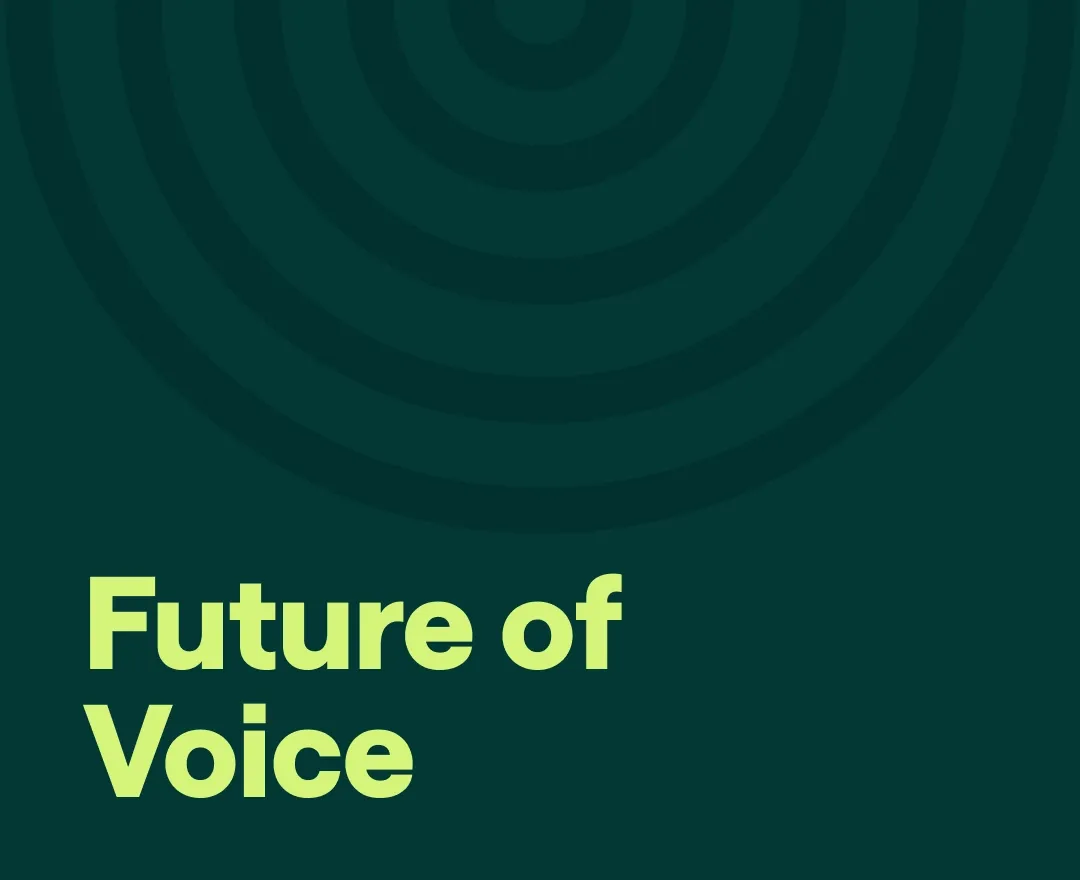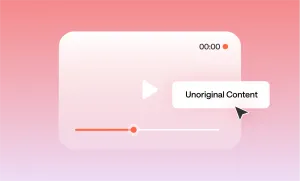AI technology, specifically AI voice technology, has accelerated over the last few years, and with rapid growth comes divided opinions. The latest IPSOS AI Monitor 2024 report1 confirms that globally, we’re torn - both nervous and excited about AI products and services.
In this Podcastle report, we’ve surveyed 1,000 Americans to explore current attitudes toward AI and AI voice technology, such as AI voice cloning, and how we want to shape this fascinating industry to ensure that this powerful tech is put to good use.
From AI’s benefits to its perceived downsides and the need for widespread education, we at Podcastle want to champion the safe use of AI voice technology now and in the future.
Key findings:
-- We don’t know the difference between AI and humans - 2 in 3 incorrectly guessed that a human voice was AI
-- Americans are divided - 26% are cautious toward AI voice technology, while 24% are supportive
-- 81% of Americans are concerned about the future implications of AI voice cloning
-- 64% want AI education to be introduced to US school curriculums
-- Americans believe the top benefit of AI voice technology is improved accessibility (60%), while the top threat is manipulation and deception (69%).
-- Over half of Americans would be happy to listen to a podcast if the host was AI-generated
Can You Tell The Difference?
Just to put things to the test, we recorded the same sentence said by a human and by an AI voice clone. Let's see if you can spot the difference, cast your vote in the poll below! (If you want to check if you're right, the answer is near the bottom of this page.)
It turns out we’re pretty torn on how we feel about AI voice technology in 2024, with a mix of positive, neutral, and negative expressions used to describe current attitudes.
The top five words used to describe attitudes towards AI voice technology are: cautious (26%), supportive (24%), neutral (15%), enthusiastic (14%), and concerned (12%).
This reflects the findings of the IPSOS AI Monitor 2024 report, but there are differences among generations that should be noted.
Baby Boomers (29%), Gen Zers (28%), and Gen X (26%) are cautious about AI voice technology, whereas more than a quarter (27%) of Millennials are supportive.
Improved accessibility was highlighted as the biggest benefit of AI voice practices, with manipulation and deception seen as the number one potential issue. New developments in AI voice technology have led to impressive strides in supporting accessibility. Recent cases have involved AI voice tools being utilized as a method of communication for people who have suffered illness and injury impacting their ability to speak2.
The rise of AI-related scams is concerning. There was a 3,000% increase in deep fake-specific fraud cases from 2022 to 20233, indicating that our biggest concerns around AI are with good reason. It’s clear that we need to create stricter usage guidelines to protect user safety and prevent misuse.
Arto Yeritsyan, CEO & Founder at Podcastle comments:
“At Podcastle, our primary goal is to champion the use of AI voice technology to enhance user creativity safely and responsibly. We’re committed to creating powerful AI-driven tools that boost productivity and maintain the safety of all our users.
“By balancing innovation with responsibility, we aim to create a platform where you can confidently explore the benefits of AI and find the tools to support you on your creative journey.”
Despite concerns about the potential misuse and manipulation of AI voice technology, six in 10 Americans say they have never mistaken voice cloning software for a human voice.
We put it to the test, asking survey respondents to identify whether a voice clip was recorded by a human or AI—and 63% got it wrong. More Millennials than any other generation incorrectly identified a human voice clip as AI, whereas Baby Boomers were the best human vs AI voice identifiers, with over two-fifths submitting the correct answer.
Thinking about how you can utilize AI voice technology for your podcast? Over half of American survey respondents said they would be happy to listen to a podcast hosted by an AI-generated voice.
Some generations aren’t huge fans of 100% AI-produced podcasts. Almost two-thirds of Gen Z say that they wouldn’t listen to a podcast with an AI host, whereas 61% of Gen Xers are happy to tune in to a podcast with an AI host that closely resembles a human.
On safely creating an AI voice clone for your podcast, Arto comments:
“At Podcastle, we have robust safeguards to ensure ethical use, such as requiring users to submit live voice recordings."
“While this process introduces friction into the creator experience, we firmly believe this is a necessary tradeoff to advocate for responsible use and development of Generative AI technology.”
“Text-to-speech technology using AI voices allows creators to produce audio content without speaking, and voice cloning technology makes this infinitely more efficient. However, companies developing this technology must prioritize safety and consider the potential for abuse, such as phishing and deep fakes.”
Attitudes toward AI voice technology are currently torn, and when we look to the future, concern is the overriding feeling, according to over four-fifths of Americans (81%). Gen X is the most concerned generation (85%), with Baby Boomers being the least concerned (81%).
To help create more informed generations, almost two-thirds of Americans want AI education to be introduced to school curriculums. Almost three-quarters (72%) of Baby Boomers agree, more so than any other generation. Gen Zers and Gen Xers are the most opposed, with nearly half (47%) saying they don’t want AI education included in the curriculum.
Until AI education is provided nationwide, the main motivation to learn how to use AI voice technology is personal interest (21%), followed by professional advancement (19%). The younger generations, Gen Z (26%) and Millennials (22%) agree that they want to learn how to use AI voice platforms to aid with career development.
According to PwC’s 2024 AI Jobs Barometer4, knowledge of AI benefits professional advancement. Their research revealed that the number of AI specialist jobs is growing 3.5 times faster than all jobs - and 25% of jobs that require AI specialist skills carry up to a 25% wage premium in some markets.
Could we see AI education introduced to US school curriculums in the near future? Currently, guidance on using AI for teaching is only being offered in thirteen states5, and a quarter of public K-12 teachers say using AI tools for teaching does more harm than good6. However, we’re yet to see teaching on safe practices for AI technology.
The top five states in favor of introducing AI education into school curriculums are Maine (100%), New Mexico (100% ‘Yes’), South Dakota (100% ‘Yes’), Connecticut (83% ‘Yes’), and Mississippi (83% ‘Yes’).
Only three states are currently opposed to integrating AI education in school curriculums: Vermont (100% ‘No’), Louisiana (83% ‘No’), and West Virginia (60% ‘No’).
With widespread support for AI education, it could be a core aspect of curriculums across the US sooner than we think.
Create your AI Voice Clone with Podcastle
If you want to create your own voice clone, look no further! Our in-depth AI voice cloning process will allow you to transform text to speech with impressive accuracy, unleashing your creativity while prioritizing and protecting your safety.
Head to the AI Voice Cloning page to get started. You’ll begin by recording a selection of voice samples for the AI system to develop a well-rounded voice clone, with tonal changes and nuances included too.
You can clone your voice in seconds. Just record a short sample on the platform and start creating voiceovers instantly—no mic or extra software required.
This thorough process prioritizes your data security and privacy. Your voice samples and personal information are kept confidential throughout the voice cloning process.
Once your voice clone has been created, you can start with text-to-speech audio generation to save you hours of production time! The opportunities are endless, whether you're recording a podcast with your AI voices, narrating an audiobook, or even developing captivating game characters.
Check out our full suite of AI-powered tools and learn more about Podcastle’s AI voice generator.
Want to know which recording was human and which was AI?
– Voice 1: AI
– Voice 2: Human
Sources
1 IPSOS AI Monitor 2024
2 AP News
3 Statista
4 PwC’s 2024 AI Jobs Barometer
5 CRPE
6 Pew Research Center
Methodology
Podcastle surveyed 1,000 Americans to understand attitudes toward AI voice technology in 2024 and future concerns. The survey utilized multiple-choice and open-text responses, with demographic segmentation including age, generation, and geographic location. Text analysis was employed to summarize open-ended questions, providing insights into common themes or threads. It's important to note that the survey data is self-reported, which may introduce biases or discrepancies between reported and actual behaviors and has inherent limitations associated with self-reporting.
To uncover which states were for, against, or neutral regarding the introduction of AI education in school curriculums, states with more than 50% respondents for 'yes' were deemed 'for', states with a 50/50 split were deemed 'neutral,' and states with more than 50% respondents for 'no' were deemed 'against.'
States with an asterisk do not have sufficient data, so findings from these states are not included on the map to prevent skewing of the data.
Fair Use Statement
Now that you have an overview of the attitudes and uses of AI voice technology in 2024 and insights future of AI voice technology, feel free to share this data.
We ask that you do so for non-commercial use and provide a link to this original study page so the researchers are credited correctly.








